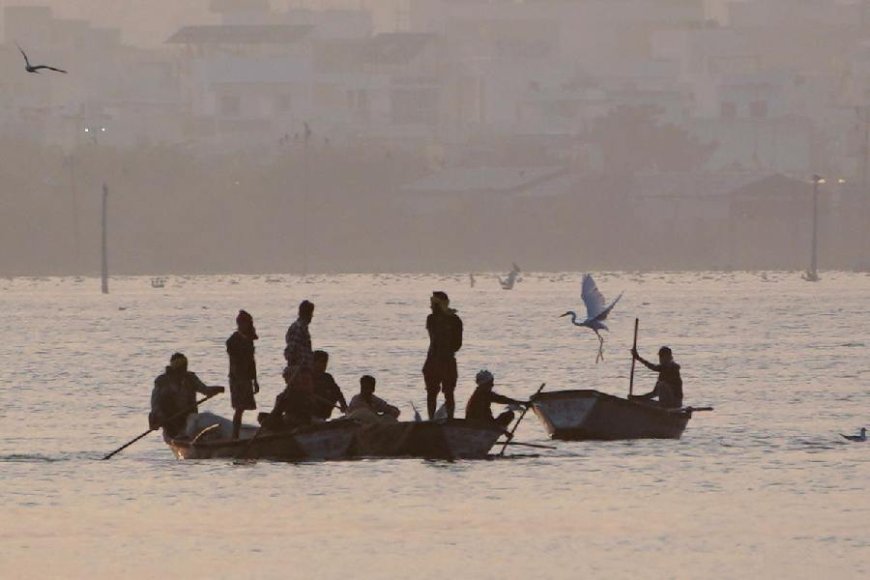Fishworkers Seek Protection of Subsidies Ahead of Global Trade Talks
NFF Appeals to Centre to Safeguard Rights Amidst WTO Negotiations

A statewide network of fishworkers requested on Tuesday that the Center defend the rights of small and traditional fishworkers to search for catch up to 200 nautical miles without worrying about losing subsidies, ahead of international trade discussions on fisheries.
In a letter to Union Commerce and Industry Minister Piyush Goyal, the National Fishworkers Forum also pleaded with the Center to oppose any moves to remove subsidies for small and traditional fishworkers during the next World Trade Organization (WTO) discussions.
On February 26–29, India will participate in the 13th ministerial WTO meeting in Abu Dhabi, United Arab Emirates, where delegates are anticipated to finalize the second half of a deal on fisheries subsidies, among other things.
An agreement that forbade government funding for illegal, unreported, unregulated, and fishing in areas with overfished stocks was accepted by participants at the 12th ministerial conference held in Geneva last year. This accord was hailed as a significant step towards ocean sustainability.
The agreement is made against the background of worries over global fish stock overfishing. Experts in fisheries believe that 34% of world stocks are overfished right now, up from 10% in 1974. Overfishing jeopardizes marine fisheries and keeps fish populations from rebounding.
Olencio Simoes, general secretary of the NFF, said, "Indian fishworkers cannot be blamed for unsustainable fishing—our scale of operations is small enough to support sustainable fishing." "We're hoping that our government will acknowledge this and safeguard the space for subsidies during the WTO negotiations."
According to its members, the NFF represents about 15 million people who either directly or indirectly profit from marine fisheries, as well as around 1.5 million fishworkers who sail for catch from all of India's coastal states and island territories.
In order to protect India's small and traditional fishworkers from losing their subsidies, the NFF has pleaded with Union Minister Goyal to assist in obtaining a unique and differentiated treatment exemption. This exemption would let them to operate up to 200 nautical miles from shore.
According to Simoes, "most boats operate within 12 nautical miles, but we're forced to go further into the sea because coastal pollution has contributed to the depletion of fish stocks."
Experts following the discussions on fisheries subsidies claim that reducing overexploitation of fish stocks by industrialized nations, which operate on much larger scales than fishworkers in poor nations, was a major goal of the agreement to ban subsidies for unreported fishing and overfishing.
However, according to Ranja Sengupta, an economist and senior researcher with the Third World Network, a non-governmental think tank that focuses on problems affecting developing nations, international regulations on subsidies may have the most effect on fishworkers in such nations.
"The elimination of fisheries subsidies will cause a collapse of small-scale fisheries — millions of livelihoods could be impacted," Simoes said. "The Center and state governments have gradually reduced fisheries subsidies."
Traditionally, India's fishworkers have gotten fuel, boats, and net subsidies. The average cost of a fishing net is between Rs 80,000 and Rs 1,00,000. Some state governments will pay up to 80% of the net's cost once every five years, or they will pay between 60% and 80% of the fishing boat's cost all at once.
But according to NFF head Leo Colaco, these subsidies have decreased over time. Colaco said, "There are days when a boat trip into the sea might cost a lakh rupees, and the boat returns with less than Rs 70,000 catch."
Except for the headline, this story has not been edited by Press Time staff and has been published from a syndicated feed.





















































